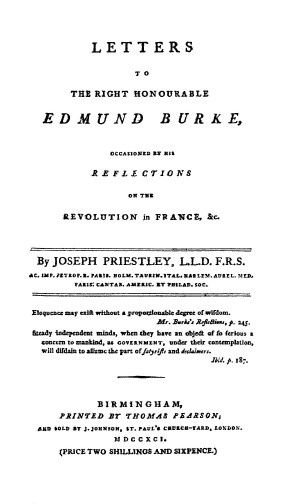
Letters to the Right Honourable Edmund Burke
- Joseph Priestley (author)
Priestley supported the early phase of the French Revolution and saw it as an advance in human liberty, thus objecting to Burke’s severe criticisms.

Priestley supported the early phase of the French Revolution and saw it as an advance in human liberty, thus objecting to Burke’s severe criticisms.